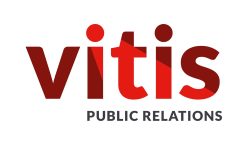Sometimes you need to persuade your bosses that PR is a worthwhile promotional activity, so one way is to try and do it yourself, get some traction and then ask, "can we now please ask the PR professionals, who will be able to do the same or probably better much more efficiently?"
If you want to try out PR and don't have the budget, here are 15 ways to get some free PR.
1. HARO for free jounralis enquries
Help A Reporter Out, colloquially known as HARO, lets you pitch your query to more than 25,000 journalists in a single blast. You should also list yourself as an expert source and/or sign up for daily notifications and jump on any current stories that are related to your company. Reporters send out requests for ideas, quotes and new products all the time. HARO can be an endless stream of free PR for your company if monitored correctly.
2. Quora for answering questions related to your product/service
Quora is a question-and-answer platform that allows you to showcase your expertise by providing thoughtful and helpful answers to queries related to your product or industry. This not only increases your visibility but also builds trust with potential customers and journalists who may stumble upon your insights. Avoid overtly promotional language; instead, focus on offering genuine value, with a subtle mention of your business where appropriate.
3. Reddit for user research
Reddit, a hub for news aggregation and discussion, is invaluable for staying informed about trends and consumer sentiment. Join subreddits relevant to your industry to observe discussions, gather feedback, and learn about emerging interests or issues. By understanding what resonates with your audience, you can refine your PR approach and craft messages that truly connect.
4. Facebook groups to spread word about business in focused groups
Facebook Groups are highly targeted communities where members often share similar interests. Identify groups that align with your business, such as local community groups, industry-specific forums, or niche hobbyist gatherings. By engaging genuinely and sharing value-driven content, you can introduce your business to an audience that’s already interested in what you offer. Be mindful of group rules to avoid appearing spammy or overly self-promotional.
5. PR Hunters to reach journalists
PR Hunters is a dynamic tool that scans Twitter for journalists actively seeking sources for their stories. By responding quickly to relevant requests, you can secure media coverage without the need for a press release. Create a concise, compelling pitch tailored to their needs to maximise your chances of being featured.
6. Anewstip for creating media databases
Anewstip allows you to create a customised list of media contacts by searching for journalists and bloggers based on their published work or social media activity. Input relevant keywords to find professionals who are likely to be interested in your industry or product. This tool is particularly useful for tailoring your pitches to journalists with a demonstrated interest in your niche.
7. Google Alerts for monitoring related news
Google Alerts is a simple yet powerful tool for staying informed. Set up alerts for your company name, competitors, or industry-relevant keywords, and receive notifications whenever these terms appear online. Use this information to identify emerging trends, assess public sentiment, and even spot opportunities for media outreach.
8. media.info for UK media contacts
Although somewhat outdated, Media.info remains a valuable resource for finding contact details of UK-based journalists and media outlets. This comprehensive directory is particularly useful for small businesses looking to target local or national media without spending on expensive PR tools.
9. News Meter for news tracking
News Meter is a global news-tracking service that allows you to search for keywords without needing to sign up for an account. It’s an excellent way to stay abreast of breaking news and identify stories where your business could add value. While the free version is limited, it’s a good starting point for small-scale PR efforts.
10. WooPitch for target list building
WooPitch combines LinkedIn and Twitter data to help you build a database of journalist and influencer contacts. The free version allows up to 10 email or social profile lookups per month, making it a practical tool for small businesses starting their PR journey. Use it to identify the right people to contact and personalise your outreach.
11. PitchRate for media opportunities
PitchRate sends daily emails containing media opportunities tailored to your industry. This service enables you to position yourself as an expert source by submitting pitches directly to journalists and editors. While free to use, crafting a compelling and concise pitch is crucial to stand out among other respondents.
12. Journorequests for journalist requests
Twitter hashtags like #JournoRequest and #PRRequest are invaluable for connecting with journalists in real-time. These tags are widely used by reporters seeking quotes, stories, or product recommendations. Follow these hashtags, respond promptly to relevant queries, and build relationships with journalists who may turn to you for future stories.









